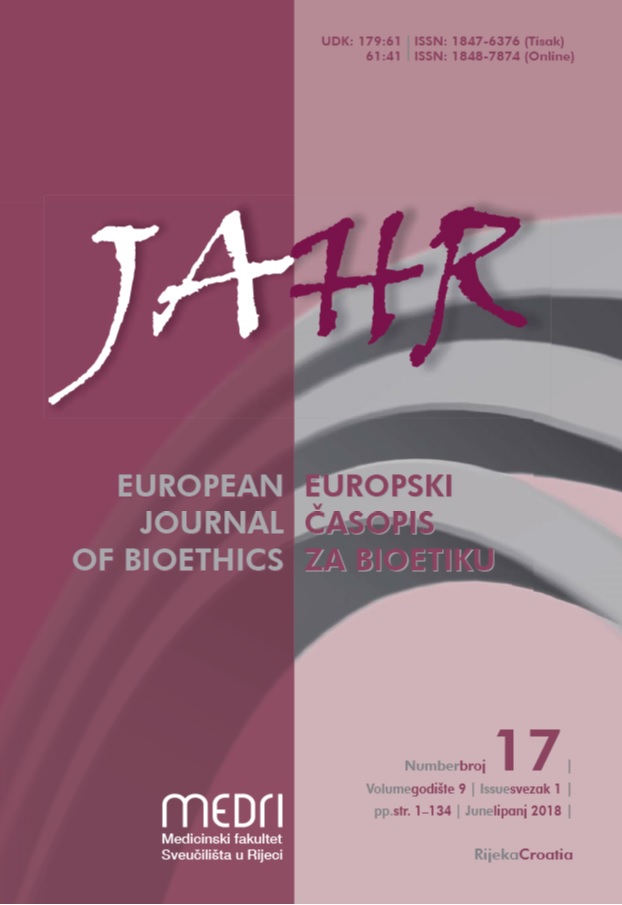Liberalni odgovori na problem uskraćivanja zdravstvene skrbi djeci i maloljetnicima iz religijskih razloga
Keywords:
multikulturalizam, liberalni arhipelag,, liberalni feminizam, egalitarni liberalizamAbstract
https://doi.org/10.21860/j.9.1.2
Medical experts, both in Croatia and in the world, are facing nowadays an increasing number of cases where the parents refuse, because of certain religious reasons, medical care and certain medical treatments for their children, even though those treatments could preserve the children’s health or even save their lives. The parents are convinced that they are acting with good intentions and in child’s favour, which leads to certain problems regarding the regulation of these cases, as well as to disagreements regarding the rights of parents and their children, or the legitimacy of state interventions in this sphere. This paper puts forward four possible liberal solutions to the above described problem (liberal archipelago, liberal multiculturalism, liberal egalitarianism and liberal feminism), specifies the scope of legitimate interventions by the state that these theories allow, and reviews the advantages of each position, as well as the most important objections directed toward each.
Downloads
Published
Issue
Section
License
Authors who publish with this journal agree to the following terms:
- Authors retain copyright and grant the journal right of first publication with the work simultaneously licensed under a Creative Commons Attribution License that allows others to share the work with an acknowledgement of the work's authorship and initial publication in this journal.
- Authors are able to enter into separate, additional contractual arrangements for the non-exclusive distribution of the journal's published version of the work (e.g., post it to an institutional repository or publish it in a book), with an acknowledgement of its initial publication in this journal.
- Authors are permitted and encouraged to post their work online (e.g., in institutional repositories or on their website) prior to and during the submission process, as it can lead to productive exchanges, as well as earlier and greater citation of published work (See The Effect of Open Access).



